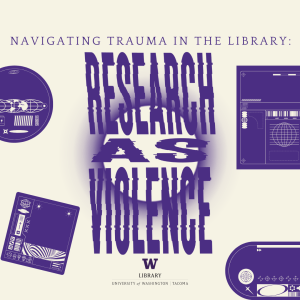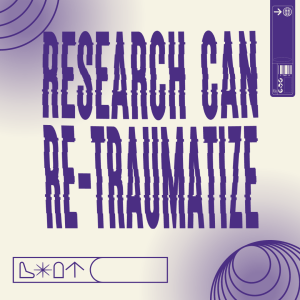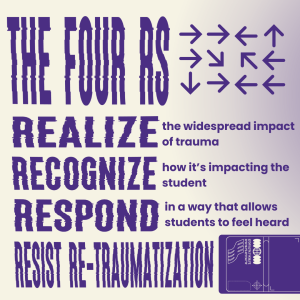
The UWT Library supports research at all levels, and we strive to be thoughtful in our approach. One way we do this is by understanding that scholarly exploration can unearth previous trauma experienced by the researcher. While research is typically viewed as an objective and neutral endeavor, this couldn’t be further from the truth. The reality is far more painful, particularly for those whose identities are continuously marginalized. There is a long history of researchers exploiting marginalized peoples in the name of science and discovery, so for a lot of people, there is no way to do research without grappling with the weight of historical injustices, systemic discrimination, and power imbalances that permeate academic and research settings.
In higher education, marginalized students, such as those of color, 2/SLGBTQIA+ individuals, and those with disabilities, often bear extra burdens. Jessie Loyer, an Indigenous scholar, highlights this in her article, “Indigenous Information Literacy: nêhiyaw Kinship Enabling Self-Care in Research.” She discusses how Indigenous students face challenges in classrooms where their identities are stereotyped and pathologized, forcing them to confront racism even in essay topics.

Research, especially on topics of oppression and discrimination, can retraumatize individuals by reopening emotional wounds. Loyer shares her own struggles, noting that as an Indigenous scholar, researching her family history inevitably exposes her to traumatic stories linked to her experiences. Similarly, marginalized researchers may face emotional distress when delving into their community’s histories of injustice. A queer researcher exploring history may find themselves confronting the trauma of their own community’s experiences, reliving stories of injustice and persecution that have been passed down through generations. A student with mental illness may be retraumatized as they dig deeper into the history of violence against the mentally ill, and so on.
The 4 R’s represent an integrated process aimed at fostering trauma-informed and resilient communities through four fundamental practices. This framework can be used by faculty and staff to incorporate Trauma-Informed Practices at UWT, facilitating both mindset and behavioral changes. Here are some simple ways you can adopt an approach that prioritizes compassion, healing, and collaboration amongst students:

Realize the widespread impact of trauma
- Acknowledge trauma
- Know its role
- Check in regularly; ask questions
Recognize how it is impacting the student:
- Identify triggers
- Empower students to use their learning brain
- Facilitate effective responses, healing
Respond in a way that allows students to feel heard:
- Help students feel seen and heard
- Provide digestible information
- Open up opportunities for student choice, expression, and therapeutic services
Resist Re- traumatization:
- Recognize pain points
- Ask students what will support their healing and research
- Listen to them to cultivate a trauma- informed learning- environment
By implementing these practical steps, UWT faculty and staff can play a pivotal role in fostering trauma-informed, resilient communities, thereby empowering students to navigate research endeavors with a sense of safety, support, and empowerment.
If you would like to learn more about understanding how trauma can impact student success in higher education, consult our Library Guide, Understanding Trauma.